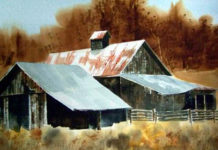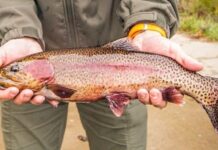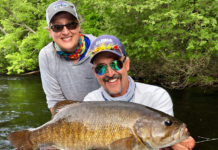All photos by Evan Jones
Fly-fishing is a very knowledge-intensive endeavor. There’s just so much to learn about so many different facets of the sport that it can all become overwhelming in a hurry. And given the breadth and depth of the expert advice that is available nowadays, it’s easy to get the impression that you aren’t likely to be successful–or even have much fun–without sufficient expertise in all these things. But nothing could be further from the truth. Granted, more knowledge will help you to improve, but you don’t really need to know much to get out and enjoy wetting a line.

It’s important to keep in mind that most expert anglers have reached that level of experience because they revel in all the complexity and nuance involved in this sport, and they love to share what they’ve learned and observed with other anglers. But if you’re just starting out, sometimes the level of detail they drill down to isn’t just unhelpful, but it can be downright discouraging, as well. You’ll often hear anglers expounding on which species of mayfly is hatching, or which super-specific fly pattern is catching fish, or how the tide cycle shifts over the course of the month, or about how they prefer one type of fly line over another. And while all these details might be helpful under certain circumstances, that doesn’t mean you need to have them all memorized–or even understand them all–before you can jump in and have fun. Don’t let good be the enemy of great.

Direct experience is almost always a better teacher than doing research, even if it turns out later that you were doing a bunch of stuff wrong. Not only does it give you the chance to build muscle memory, but you also get a chance to observe other anglers in action, maybe even chat with them about their technique and approach. You’ll often find that there’s a distinct division between theory and practice, and that a much wider range of presentations and flies will work than might have seemed from your research. You might also discover your own secrets for success along the way, but you’ll never know unless you get out and get those boots wet.
Credit: Source link































